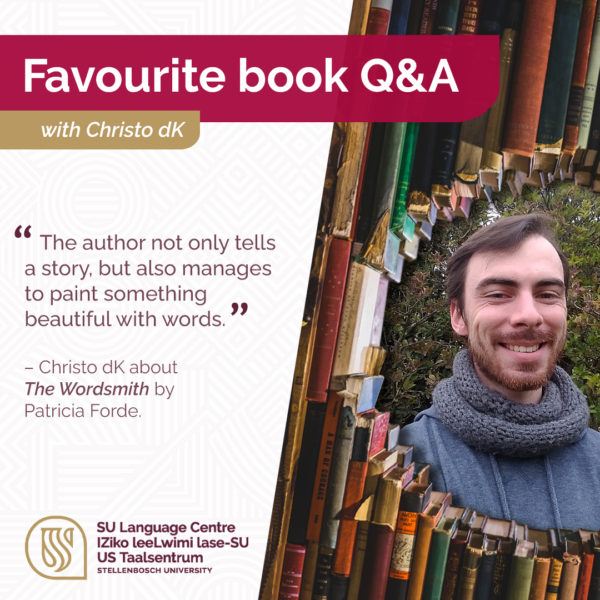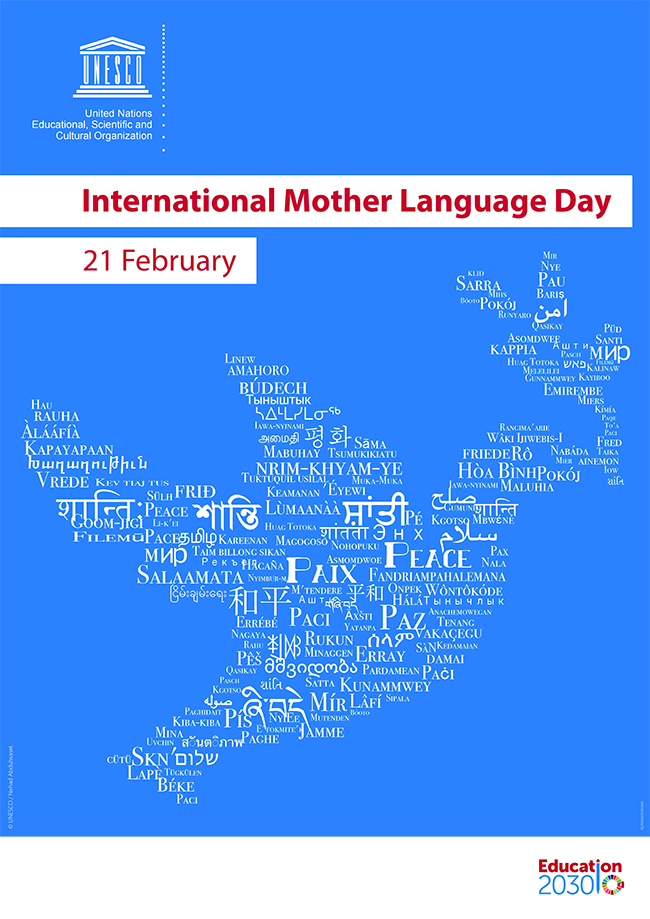Book chat with Christo dK

Get to know us through the books we read!
This month we chat to Christo de Kock. He is currently doing his internship at the Language Centre and has recently completed his honours in Translation. “Language is something very close to my heart and that’s why it’s such a joy doing my internship at the Language Centre, where I can work with language every day.”
What is the title of your favourite book, or a book that had a great impact on you, or a book that is memorable for some reason?
The Wordsmith (also published as The List) by the Irish author, Patricia Forde.
Why did this book make such an impression on you?
I have a great love for language, and without my language I’m unable to be me. The Wordsmith reflects my love and need for language very well, and showcases the absolute beauty of language. The book interrogates the idea of language being imperative for human survival. Without language our tongues are cut off, figuratively speaking. But language has more purposes than mere survival. Having a broad and colourful vocabulary allows us to live, think, reason and create, and not survive only.
In addition to the content that interests me, the author’s way with language also resonates with me. It flows like a melody and the author does not only tell a story, but also manages to paint with words – it’s an illustration of what we can achieve with language and what potential words have.
Who is (are) your favourite author(s)? Also tell us why?
Patricia Forde – she wrote The Wordsmith.
Roald Dahl – Roald Dahl’s stories are so colourful and timeless, and can be read by anyone – no matter how young or old you are. Just like Forde, he manages to play with language and illustrates its beauty.
What are you reading at the moment?
I’m currently reading Heidi by Johanna Spyri. I like reading children’s stories because that’s what’s keeping the young innocent child inside of me alive. And I feel like dusting off my German.
Do you have a preference: reading physical books with paper pages or on a Kindle or other electronic platform? Why do you say so?
I have a strong preference for printed books. I like things that are tangible. For me reading is also a sensory experience – I want to be able to see the book, to feel it. I want to be able to even smell the paper.
What book have you re-read? Also tell us why?
The Wordsmith. I read it more than once because I wanted to embark on another language adventure. But I also read the book in two different languages. As a young translator, I wanted to see what translation challenges could be identified in the book and how the Dutch translator went about with it – because I just love the Dutch language and I found it interesting and informative to read the book in Dutch, but also because I would love to be able to translate the book into Afrikaans one day.
Who is your favourite literary character?
Roald Dahl’s Matilda. She is intelligent and, despite being small and unimportant to others, she doesn’t allow people to walk over her. She’s mature and fiercely supports justice, and she makes sure that others are treated fairly.
Have you perhaps learnt a life lesson from a book or character that you would like to share with us?
Don’t underestimate the value of your language.”
What book/books would you recommend to your students, friends or anyone else?
Heidi – Johanna Spyri (if you feel like reading some German)
The Book Thief – Markus Zusak
Brolloks en Bittergal – CJ Langenhoven
George’s Marvellous Medicine – Roald Dahl
Matilda – Roald Dahl
Die Bergengel – Carina Stander
